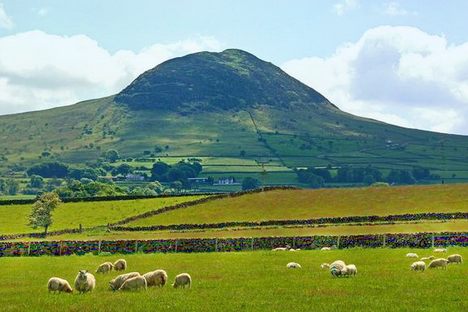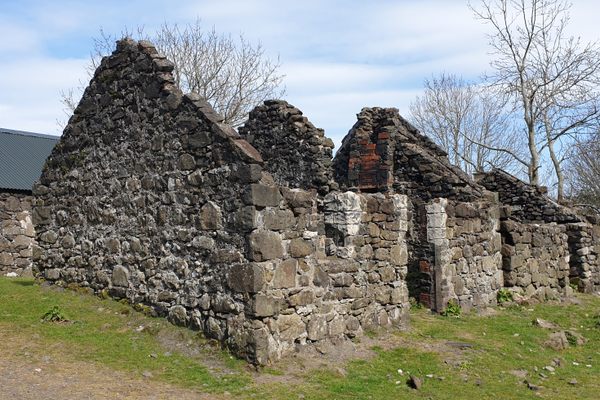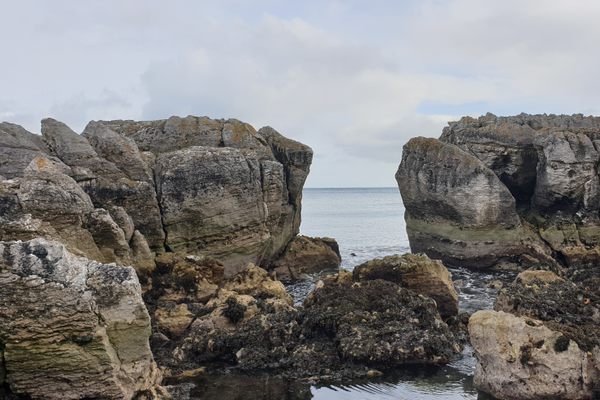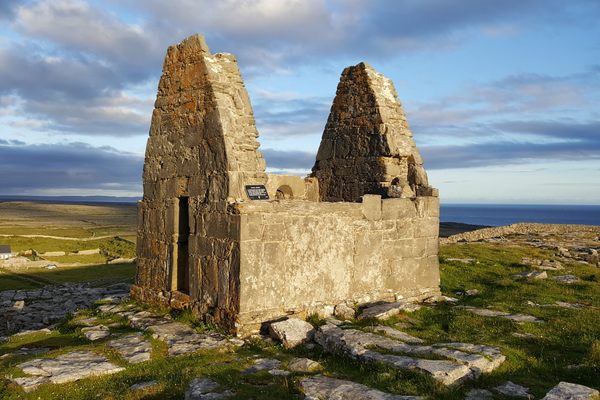AO Edited
Layd Church Ruins
The father of Belfast medicine is buried in the graveyard of this 13th-century church, which now lies in ruins.
Today, all that remains of this 13th-century Franciscan friary is the foundation and some gravestones. The Layd Old Church has seen its fair share of history, including the Taxation of Pope Nicholas (1291-1292), the dissolution of monasteries under the rule of Henry VII (1536-1540), and conversion into a Church of Ireland under three generations of the McArthur family (1696-1796), who often preached in the Irish Language and finally its abandonment in 1800 and is now a protected site of historical importance.
These church ruins contain many interesting graves of local people but there are two gravestones that are particularly interesting. On the western end of the church, a large Celtic Cross marks the resting place of James McDonnell, who lived from 1798-1845. Sometimes called the father of Belfast medicine, McDonnell was a physician who was dedicated to improving medical access for the city’s poor. He helped found the Royal Victoria Hospital and Belfast Medical School.
The other is a Holestone-shaped Celtic cross to the left of the graveyard’s entrance. This Holestone is said to have been brought to Ireland by the infamous Scottish family known as the MacDonnells, who formed a powerful clan that helped shape and influence Irish Politics throughout the 15th and 16th centuries. It is said that the Holestone was removed from the MacDonnell farm in the Glenravel area of the Glens of Antrim and was placed at the grave of a Frank MacDonnell in 1861, who was a descendent of the family.
Know Before You Go
To get to the Layd Old Church Ruins you are best driving up the East Antrim Coast Road until you reach the Coastal County Antrim village of Cushenall. From here make your way onto Shore Street and follow this road for a short distance before turning off onto the Layde Road. Travel along the Layde Road until you reach the signage for the Layde Old Church Ruins which will direct you into a gravel car park from which it is a short walk along a grassy pathway to the old church ruins.






















Follow us on Twitter to get the latest on the world's hidden wonders.
Like us on Facebook to get the latest on the world's hidden wonders.
Follow us on Twitter Like us on Facebook